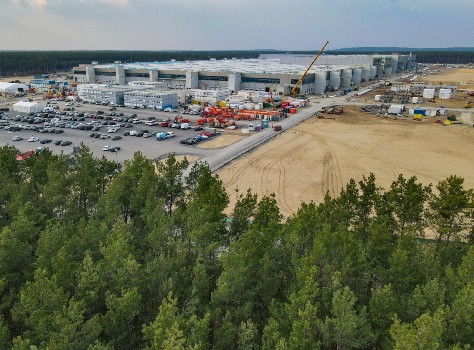"Renault will sign the agreement tomorrow," she said, confirming press reports.
According to France's Le Figaro newspaper, the factory will be located in the second city of Oran and will be geared to the burgeoning local market.
Car sales in the north African country are expected to touch 450,000 units this year against 300,000 in 2011. Renault already holds a 25 percent market share.
According to the daily, the Algerian state will hold a 51 percent stake in the venture and Renault will hold the rest.
It will produce the Renault Symbol, a saloon based on its Clio compact sold mainly in markets where hatchbacks are not traditionally favoured.
The plant will have an initial capacity of 25,000 vehicles annually from 2014 and will rise to a maximum yearly output of 75,000, according to Le Figaro.
Algeria is an important supplier of oil to France, hundreds of French businesses operate there, and France is its top trade partner.
Hollande goes there on a two-day visit Wednesday, accompanied by a dozen government ministers and senior executives from top French firms.
The aim of the trip is to try and end simmering resentment over French colonial rule and buttress trade ties with the world's fourth-largest gas exporter.
In February, Renault inaugurated a giant factory in Morocco to build low-cost cars, sparking controversy in France where a loss of industrial competitiveness has rankled.
Renault is seeking to push no-frills models such as the Dacia range with its sales plummeting in Europe faster than any other carmaker.
The company has said it will make strategic investments overseas, notably in Russia and China, and also focus on top-of-the-range cars and electric vehicles.


 Please whitelist us to continue reading.
Please whitelist us to continue reading.
Member comments